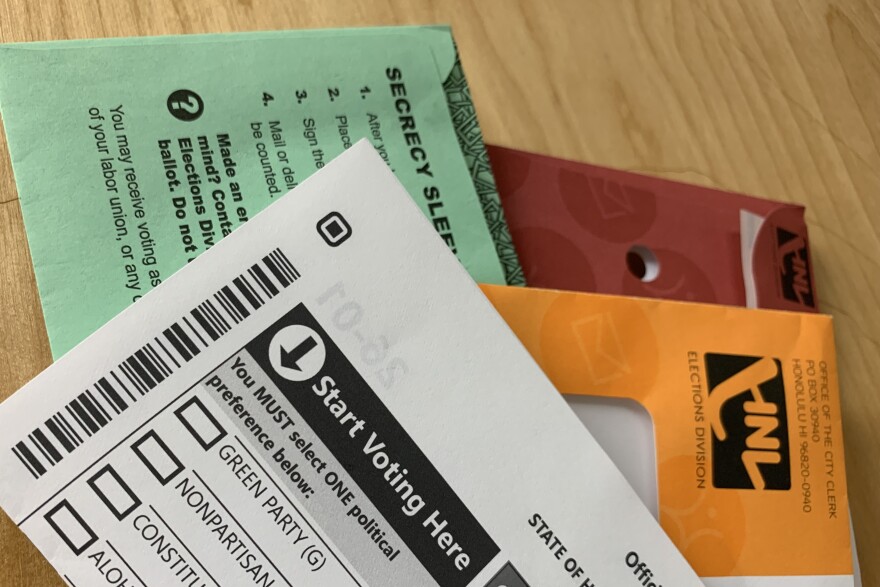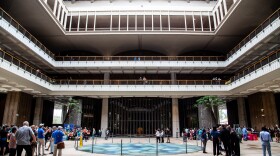The 2022 general election ballot won’t have any state constitutional amendments, but each county will have plenty to choose from.
Hawaiʻi Island residents will see three proposals, while Oʻahu and Kauaʻi residents will each see four.
Maui County, on the other hand, will see a few more, according to Keoni Kuoha, the vice chair of Maui’s Charter Commission.
“There are 11 proposals that have been put forward by the Charter Commission, and two alternative proposals that were brought forward by the County Council,” Kuoha said “So essentially, that together is 13, and then the County Council on its own has decided to put two additional ballot measures forward. So the grand total is 15.”
But ballot questions anywhere give voters the opportunity to make their voice heard on certain issues. In turn, if proposals are passed, it results in changes to the county’s charter, or code.
Ballot questions can tackle a range of actions, like creating new departments or commissions (like Hawaiʻi Island proposing a Youth Commission); changing how county government operates (potential revision of the Honolulu City Charter to expand the use of the Clean Water and Natural Lands Funds); and even tackling everyday issues (Kauaʻi considering removal of a provision to allow its County Council to create its own election company).
This year, Maui residents will be asked if they would like to split the Department of Housing and Human Concerns into two.
“This proposal one would create a Department of Housing and a separate Department of Human Concerns,” Kuoha said. “Given the importance of having a healthy housing market that all our local families can have access to, we can stem the tide of families moving out of state, because they simply can't afford to live here anymore.”
Lori Koga, chair of Kauaʻi’s Charter Review Commission, sees her role as facilitating – and ensuring – that the county’s charter is up to snuff, looking at how to make it cleaner, save the county money or make sure outdated practices are updated.
Education on ballot amendments goes a long way. In 2020, Kauaʻi residents voted in favor of all proposed amendments after the office of boards and commission began a digital campaign that broke everything down.
“A lot of people didn't understand charter amendments, right? They didn't know how to answer yes or no,” Koga said. “A lot of people don't even look at the charter thinking it doesn't pertain to them.”
Every county does it a little differently, but for the most part, charter amendments can be proposed through a combination of council members, the mayor’s office or other boards and commissions, depending on its individual charters.
“It’s a lengthy process, it requires lots of deliberation, lots of feedback provided by both the general public as well as the county, particular commissioners of the county, also provide quite a bit of feedback,” Kuoha said. “The start of our process was really an open sort of open door saying, 'Hey, what is there to fix in the county? Or what are the opportunities to improve county governance?'”
Leading up to election day, HPR will dive deeper into each county’s specific ballot amendments.
More information can be found at elections.hawaii.gov.







